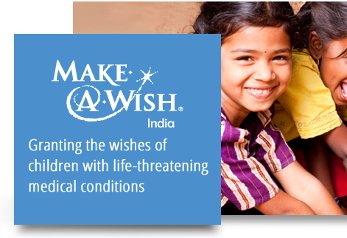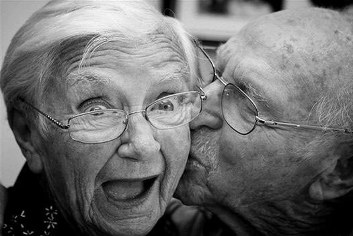What we know as adult education has been shaped by the activities of key organizations. Adult education is, thus, simply what certain organizations such as the Workers Education Association or the YMCA do. One way to approach this is to contrast adult education with the sort of learning that we engage in as part of everyday living. Adult education could be then seen as the process of managing the external conditions that facilitate the internal change in adults called learning. Adult education can finally be approached as a quality emerging through the developing activities of unionism, political parties and social movements such as the women’s movement and anti-colonial movements. Adult education is concerned not with preparing people for life, but rather with helping people to live more successfully. Thus if there is to be an overarching function of the adult education enterprise, it is to assist adults to increase competence, or negotiate transitions, in their social roles (worker, parent, retiree etc.), to help them gain greater fulfillment in their personal lives, and to assist them in solving personal and community problems. George Takei Urgency to maintain the programs
Related Articles
enriching the lives of children all over the world
Listening matters: poor people are not mere beneficiaries
Clinical psychologist Adrien Cascarino writes on how empowerment requires a high dose of self-confidence, which is undermined when individuals are regarded as mere beneficiariesAdrien Cascarino C. is sitting in her house, anemic, tired-looking, and emaciated. Her 3 malnourished children, a 3-year-old son and two-year-old twin daughters, are sleeping, with rashes all over their skin and worms in their bellies. None of them have ever seen a doctor, they are mostly staying at home. Are they living in a remote area, too far from any potential support? Or maybe health treatment is just too expensive? They are in Vitas, Barangay 105, Tondo, a slum of Manila, capital of the Philippines. The place is reached by non-governmental organizations (NGOs) and public services. In fact, there is a free feeding program just 10 minutes away from C.'s makeshift house. Walk 10 minutes more and there is the Vitas Health Center, which offers free medicine and check-ups. You have 3 options on how you view people like C.: 1) You can either take the easy path and say "poor people are lazy, they don’t make the effort to solve their issues, that’s actually why they are poor." 2) You can take the middle and think that "poor people lack knowledge; we need to educate them and make them understand what are the right actions and decisions to make.” 3) And finally, you can consider C. as a person, someone as smart as you. Throw away ready-made answers and try to understand what’s actually happening in C.'s situation. Demotivation ATIA, an NGO founded in 2008, chose the 3rd path, assuming that socio-economic exclusion results in – rather than from –lack of self-esteem, lower cognitive functions, and consequently, very poor agency. Instead of telling C. to do what would feel right for us and therefore confirming her inability to properly raise her children by herself, we should take the time to know her, her story, and her dreams. We need to decipher her words, like this odd sentence that blurted out of her lips the first time we met: “Gusto ko lumabas pero hindi ko alam paano (I want to go out but I don’t know how)." Originally from Davao, C. migrated to Manila in hopes of eventually becoming a caregiver overseas. She believed that she could complete her training in the city and land a contract that would take her elsewhere. But by the time she completed her training, she had run out of funds. She ended up wandering the streets until she met N., who then became her partner. C. and N. live in the slums of Tondo. She had 3 children and started staying at home, waiting for N.'s P100 to P150 pesos daily income from scavenging. She felt alone and disempowered. After 9 months of weekly visits from the psycho-social counselors trained by ATIA, and hired by Enfance Foundation, a partner’s organisation of ATIA, C's family received treatment from the local health center. C. also finally met her neighbors and started looking for a job. The psycho-social counselors established a relationship with C. and N., seeing them as intelligent human beings capable of deciding what is best for themselves and their family. Not just bodies There are a dozen other stories like C.'s; tales of teenage parents, kids growing up with violence, and young Filipinos who stopped believing in the goodness of themselves and of others. Unfortunately, taking time to talk with poor people is still not considered a priority by many. Getting funding to do just that may also be difficult. Many organizations, however, have already shifted their views from merely treating poor families as nothing but mouths to feed to considering them as minds to educate. While this change is definitely an improvement, it still does not remove the condescending and paternalistic tone attached to these programs. This mindset is saying that “there is no point in listening to poor people, we just need to give or teach them what they need and they will get better.” Some people will not accept such help because they think they don’t deserve it, or because they don’t think anything can really change. Others will accept assistance and get better, but would then wait for another benefactor. Why? Because dole-out approaches don’t really improve their self-esteem or their agency. ATIA’s experience shows that by simply conversing and establishing relationships with marginalized families, we are helping them better understand their history, issues, and resources. This can make them feel in control of their life. We need to address physiological and psychological needs at the same time, not just one over the other. Empowerment requires not only a healthy body and an educated mind, but also a high dose of self-confidence, which is hampered when we consider individuals as mere “beneficiaries.” Adrien Cascarino is a clinical psychologist Clinical psychologist Adrien Cascarino writes on how empowerment requires a high dose of self-confidence, which is undermined when individuals are regarded as mere beneficiaries
enhancing the lives of senior citizens
Hakawati and the Syrian Experience
From the UK, Juan delGado presents the wonderful initiative Qisetna
the Samasource project, crowdsourcing and Leila Janah
Who will help the young artists reach their full potential?
The work of the AICF and the pride of Israel since 1939
the idea of Medic Mobile
Connect, motivate, retain : how to reinvent volunteerism
San Francisco : USA : Anitha Beberg tells OLBIOS about SEVA EXCHANGE
empowering social good organizations
it only takes the right software
![]()
STAY IN TOUCH
SUBSCRIBE TO OUR NEWSLETTER
AND RECEIVE OUR LATEST STORIES










